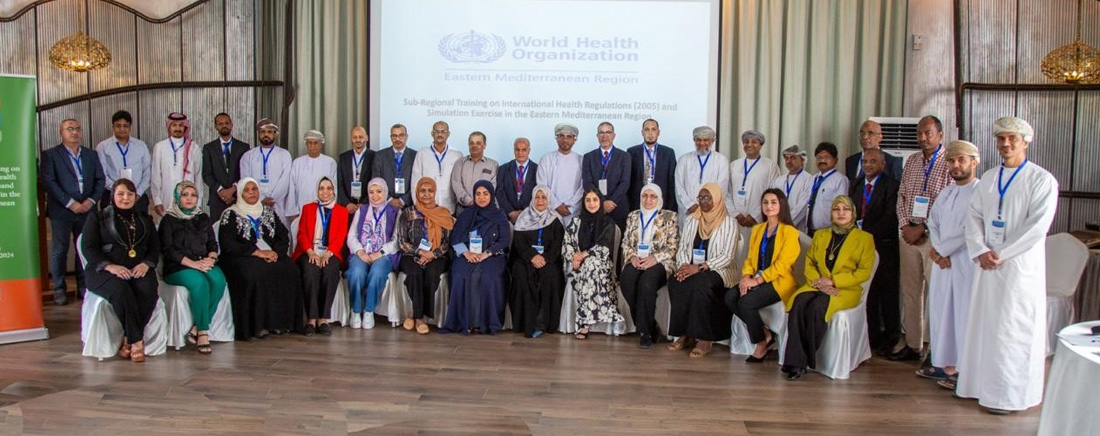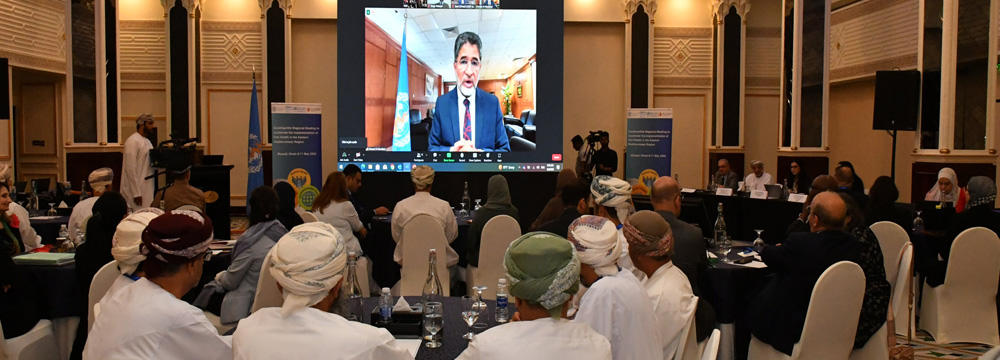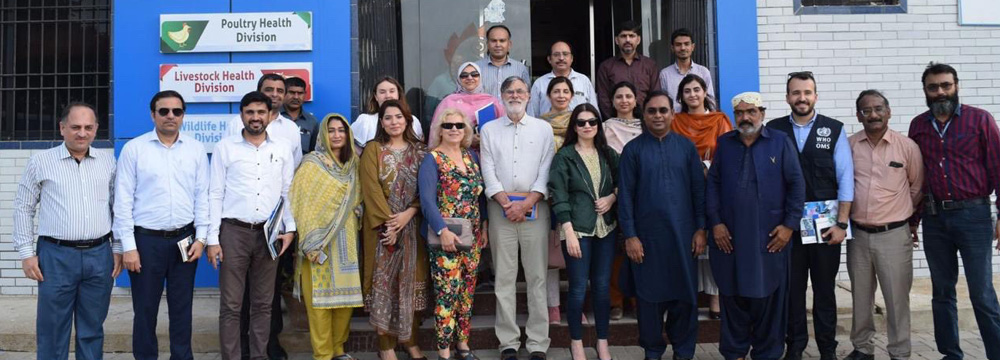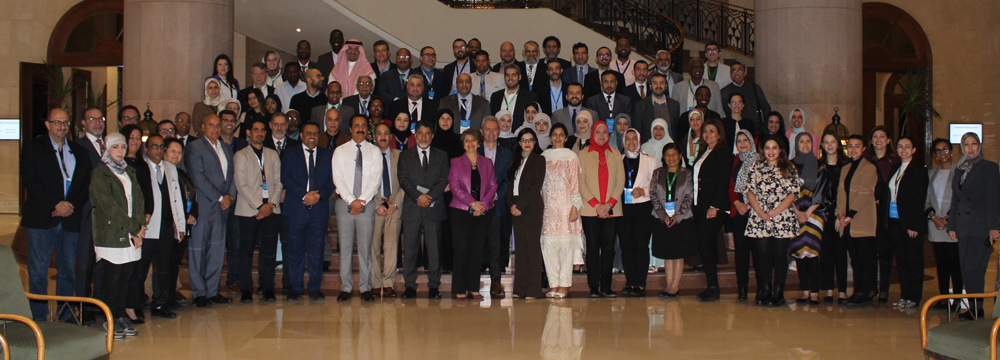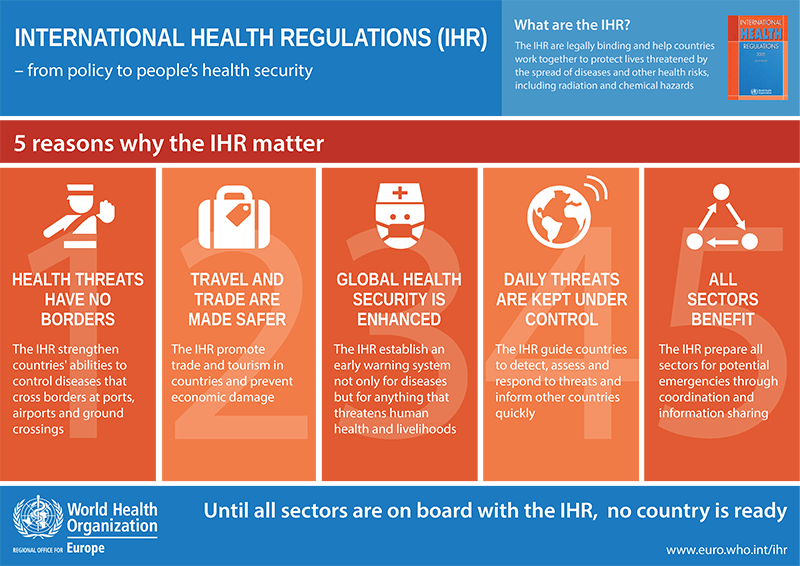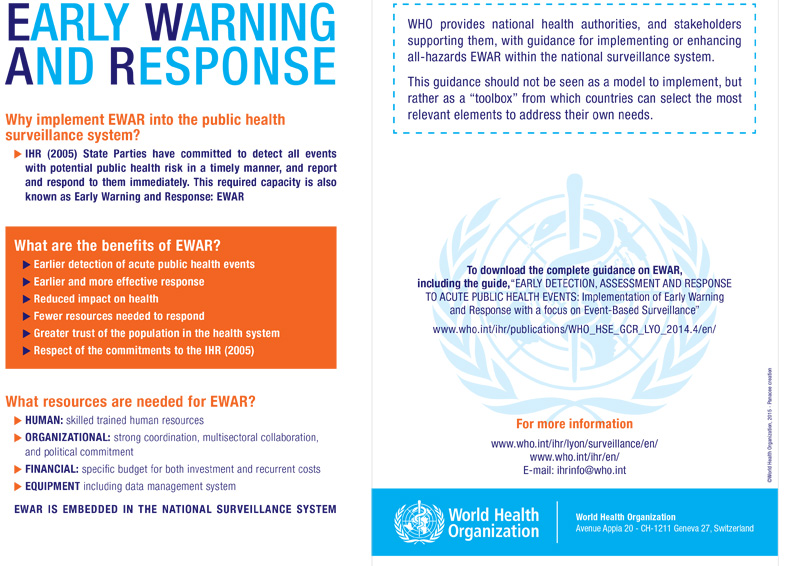Country Health Emergency Preparedness and International Health Regulations
Our work
Health emergency preparedness
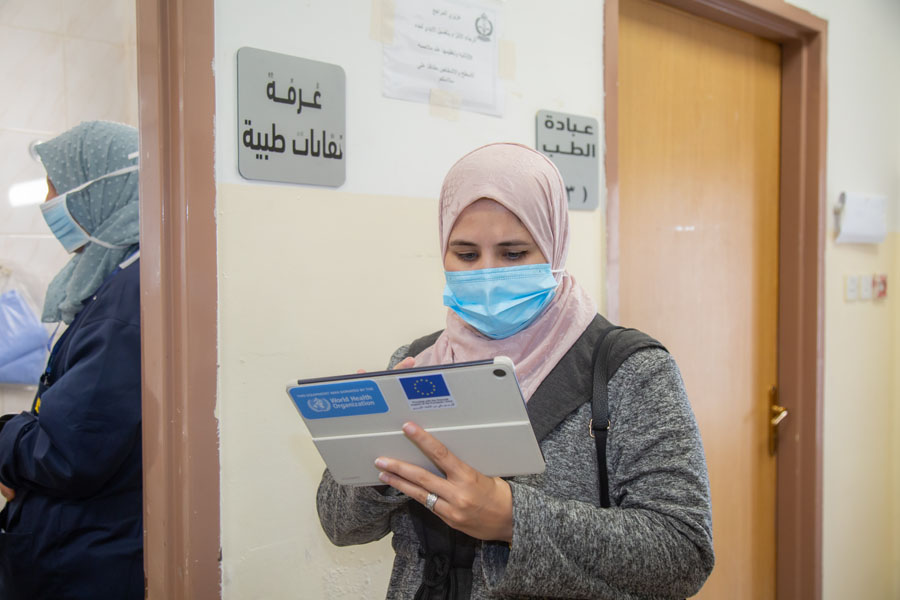
International Health Regulations
Putting into practice the International Health Regulations (2005) to manage cross-border public health events effectively.
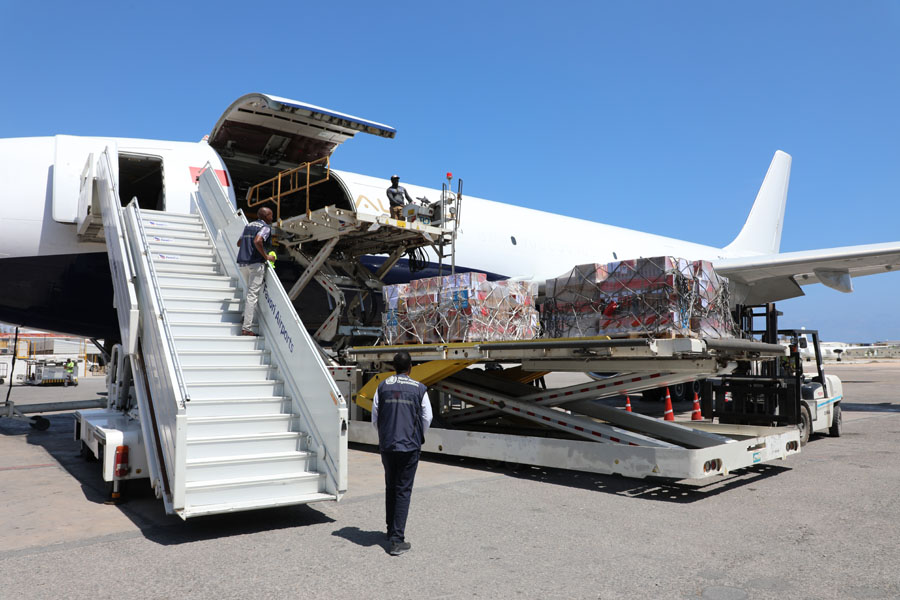
Points of entry and border health
Maintenance of capacities at points of entry for emergency readiness and effective cross-border coordination.

Mass gatherings
Effective management of mass gatherings to reduce risks and promote and protect global health security.
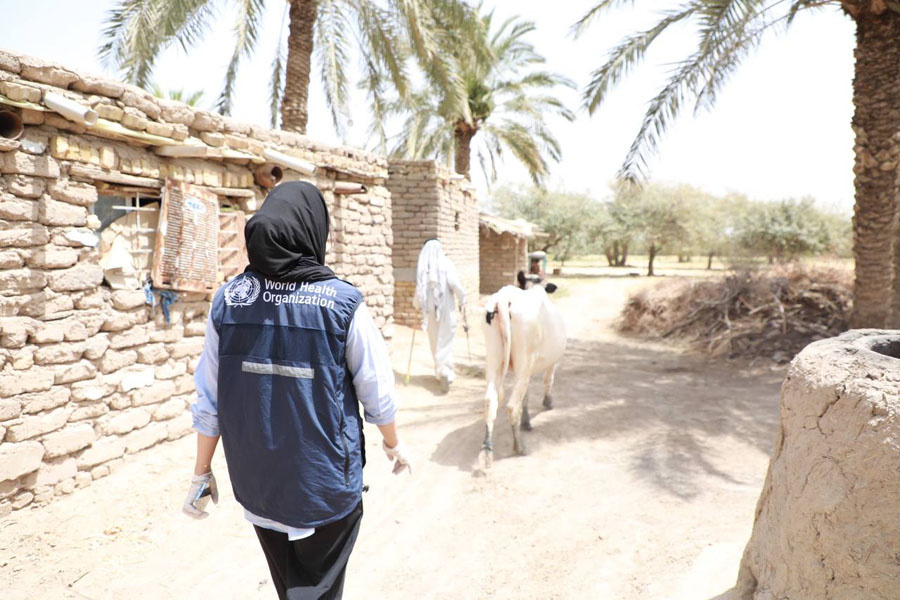
One Health
Taking a One Health approach to achieve sustainable well-being for humans, animals and ecosystems.
Operational readiness
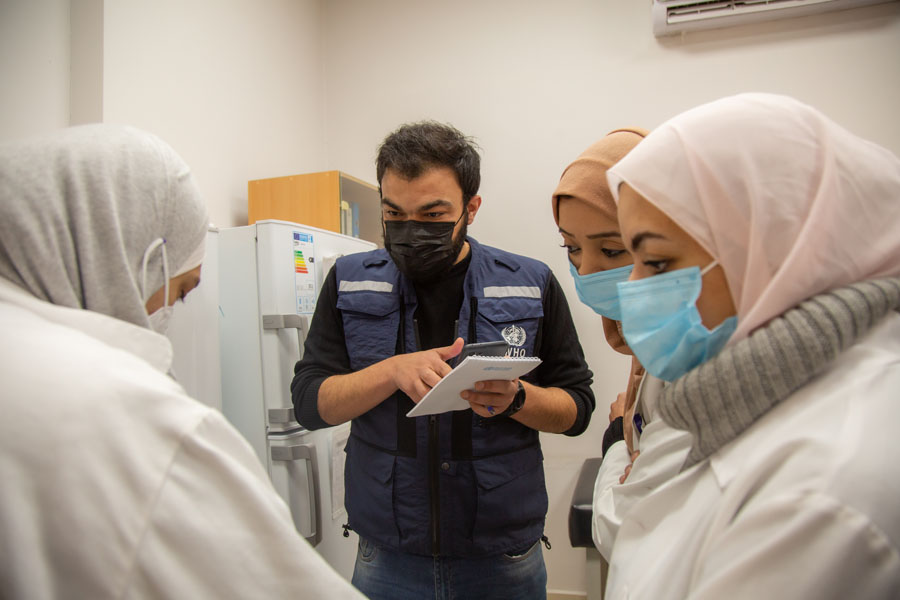
Emergency care systems
Work to strengthen the emergency care systems that are vital to emergency preparedness and response.
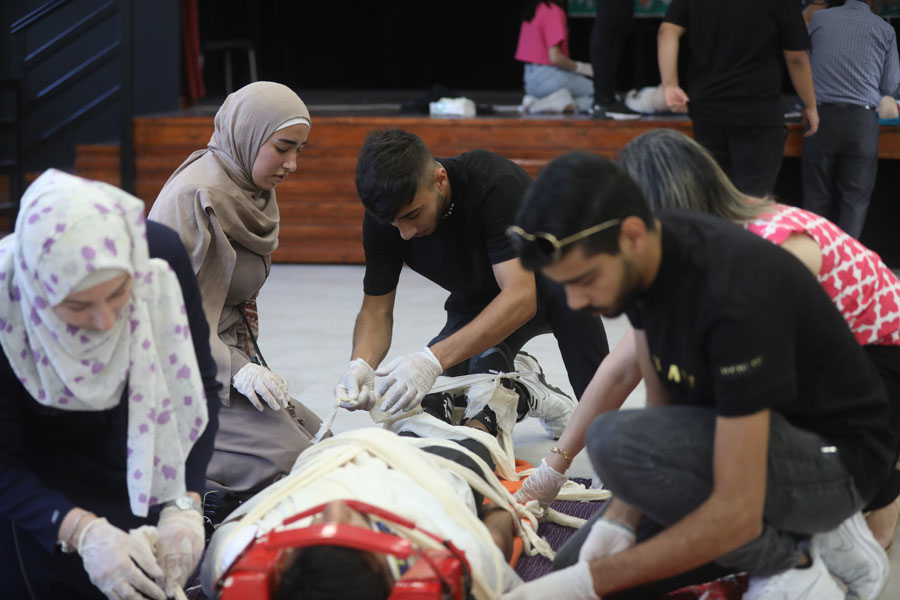
Emergency medical teams
Strengthening health systems through the coordinated deployment of quality-assured medical teams in emergencies.

Public health emergency operations centres
Enhancing public health emergency operations centres, which are critical to how countries manage emergencies and coordinate responses.
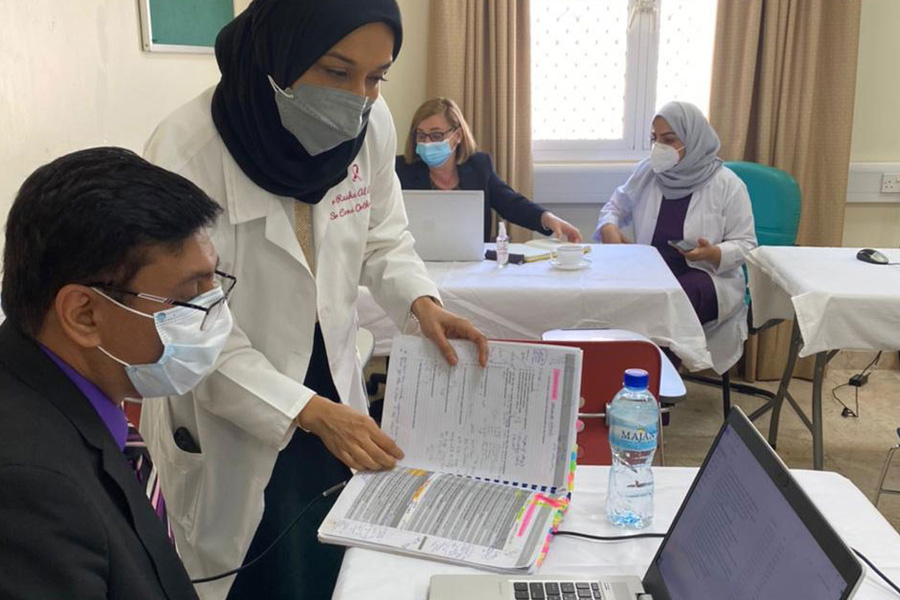
Risk profiling and emergency planning
Using evidence-based approaches to identify, analyse and prioritize health risks to prevent, mitigate and control potential harm.
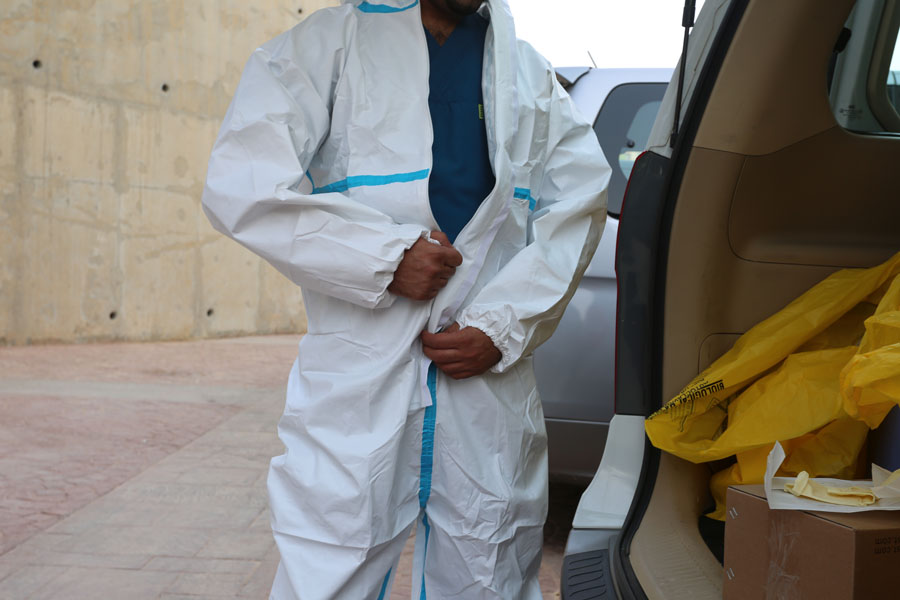
Health security interface
Work to help countries strengthen their health security interface is guided by the WHO Constitution, which emphasizes the role of health in peace, security and cooperation.
Risk communication, community engagement and infodemic management
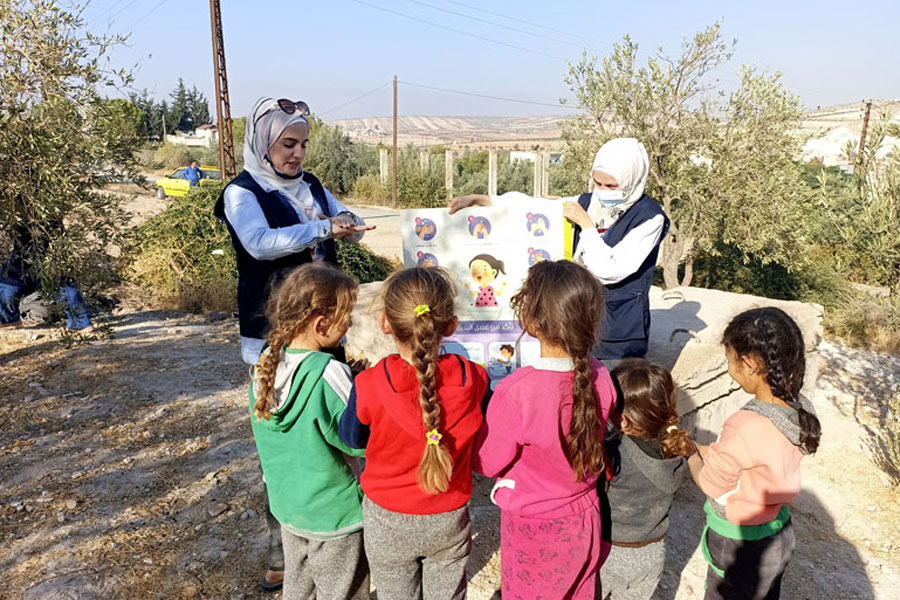
Risk communication, community engagement and infodemic management
Improving risk communication, community engagement and infodemic management to enable well-prepared communication responses in emergencies.
Multimedia


